Current Issue




Browse Issues
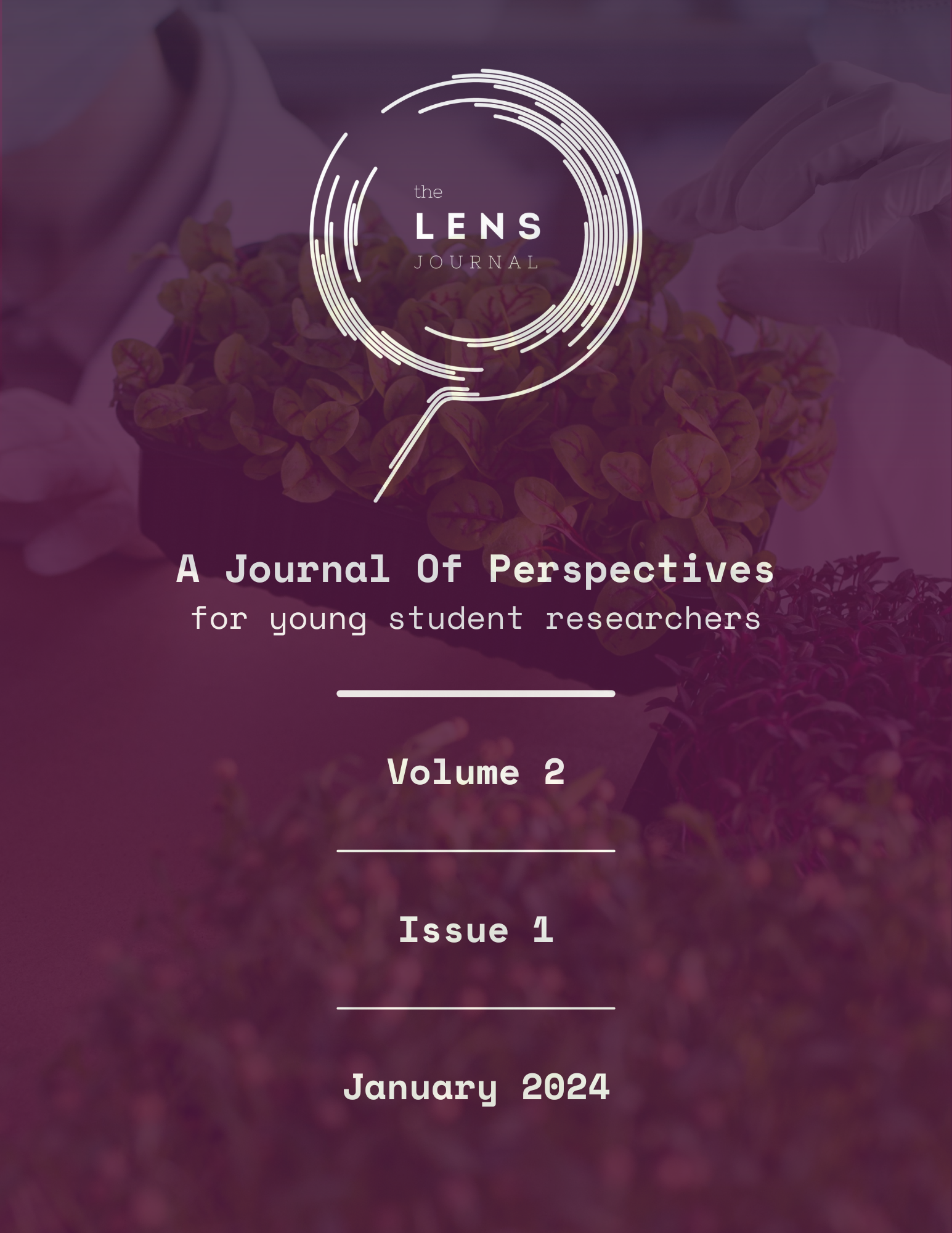
Volume 2, Issue 1, January 2024
Welcome to the January 2024 edition of Lens, where we proudly present our latest issue of diverse and captivating articles and case study. In this issue, we delve into an array of topics ranging from science to environment, offering fresh perspectives and rigorous analyses that aim to stimulate thought and inspire action. These contributions exemplify our unwavering commitment to academic excellence, reflecting the dedication and expertise of our esteemed authors.

Aditya Nadar
10.5281/zenodo.10498539
2-29
This research paper explores the significant impact of salinity on agriculture, a pressing issue in the context of global freshwater scarcity.
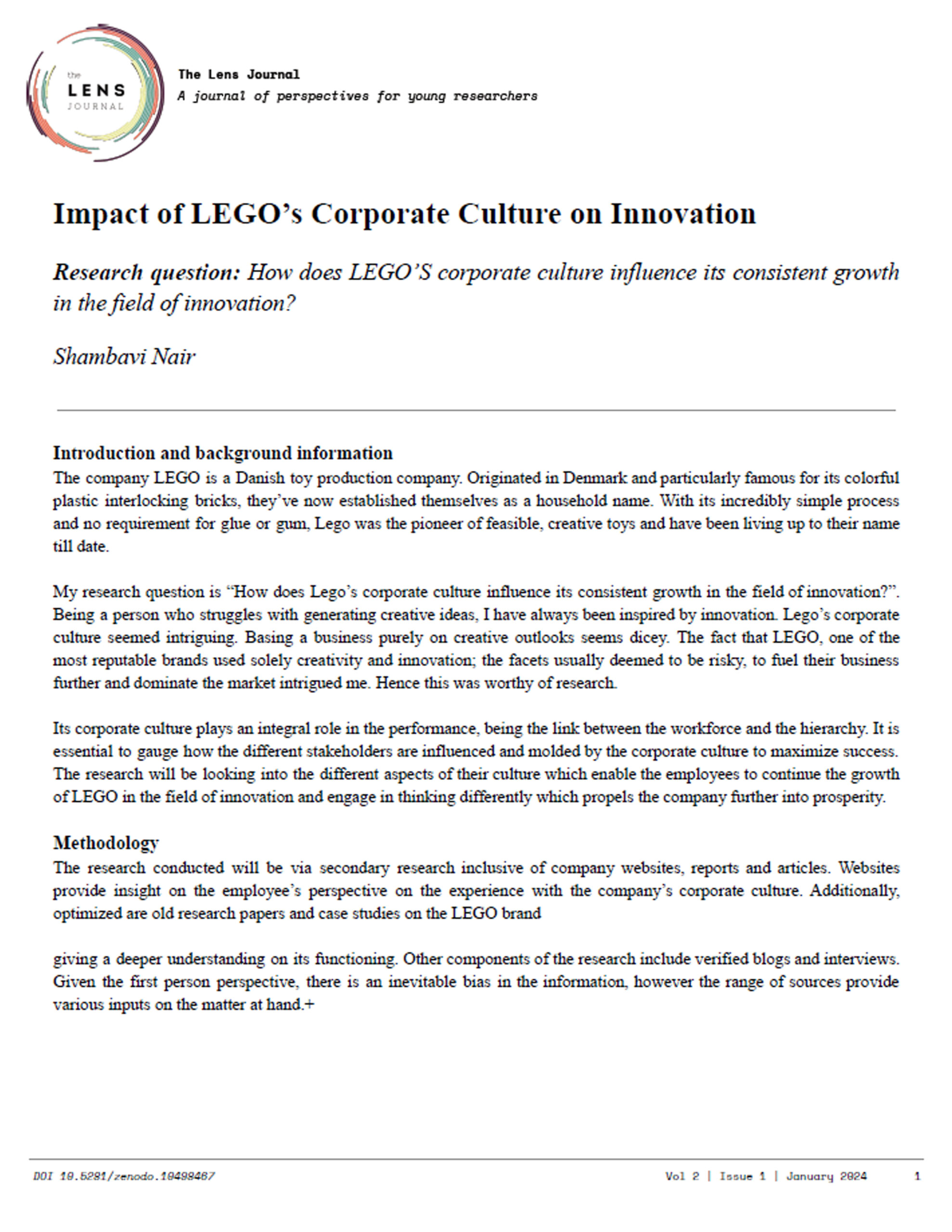
An intriguing case study that examines how LEGO’s unique corporate culture fosters continuous innovation and growth in the competitive world of toy manufacturing.

Elizabeth Buxo
10.5281/zenodo.10498525
45-51
An insightful exploration into the global efforts to transition from fossil fuels to renewable energy, focusing on the initiatives in Trinidad and Tobago and China.
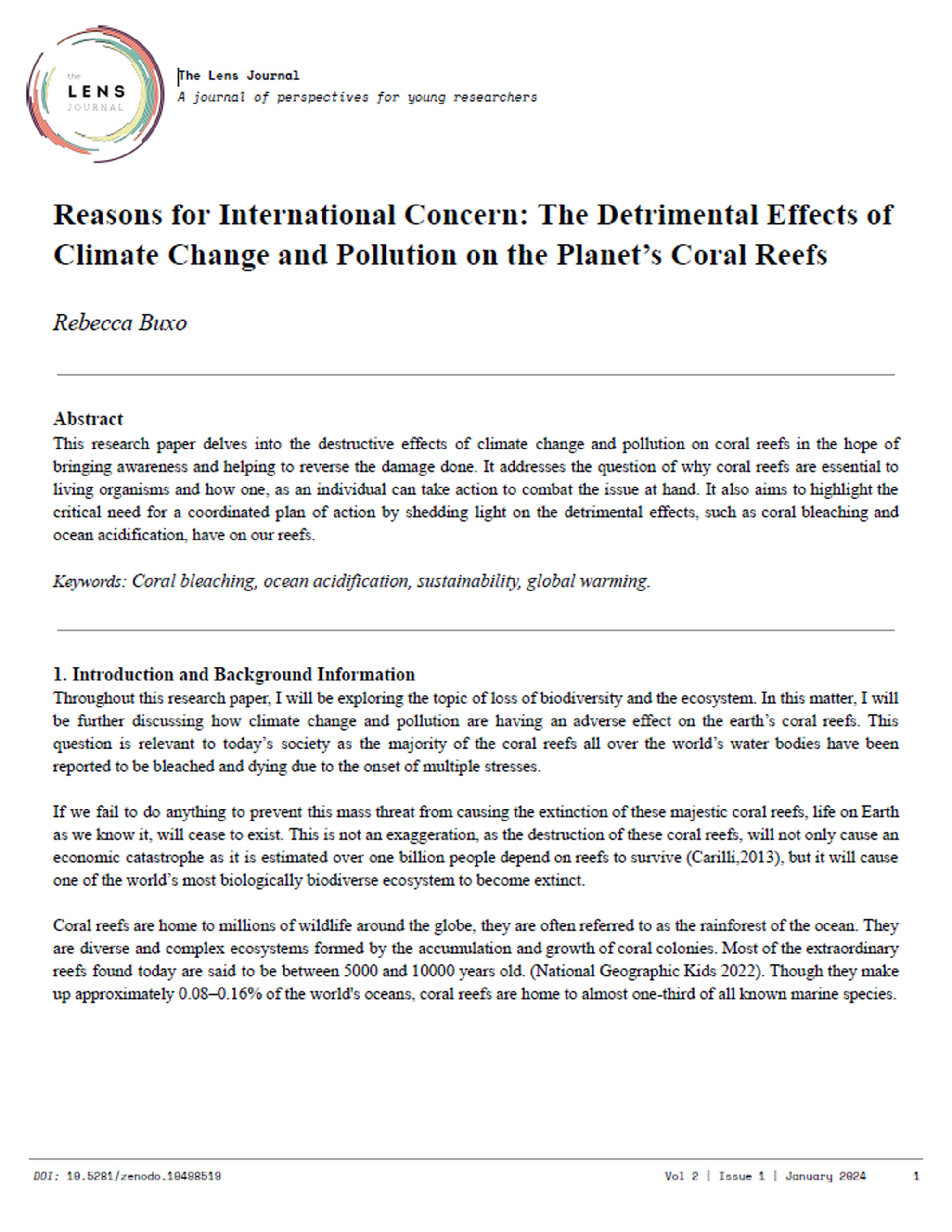
Rebecca Buxo
10.5281/zenodo.10498519
52-65
A compelling piece that highlights the critical state of our planet's coral reefs, emphasizing the need for immediate action to preserve these vital ecosystems.
Ready to submit your paper?
Submit PaperBrowse Issues

Volume I, Issue II, September 2023
Building on the foundation laid by our inaugural issue, this edition delves deeper into pressing global challenges, offering fresh perspectives and rigorous analyses that we hope will stimulate thought and inspire action. In this issue, we are pleased to present three meticulously researched papers that epitomize our commitment to academic excellence.
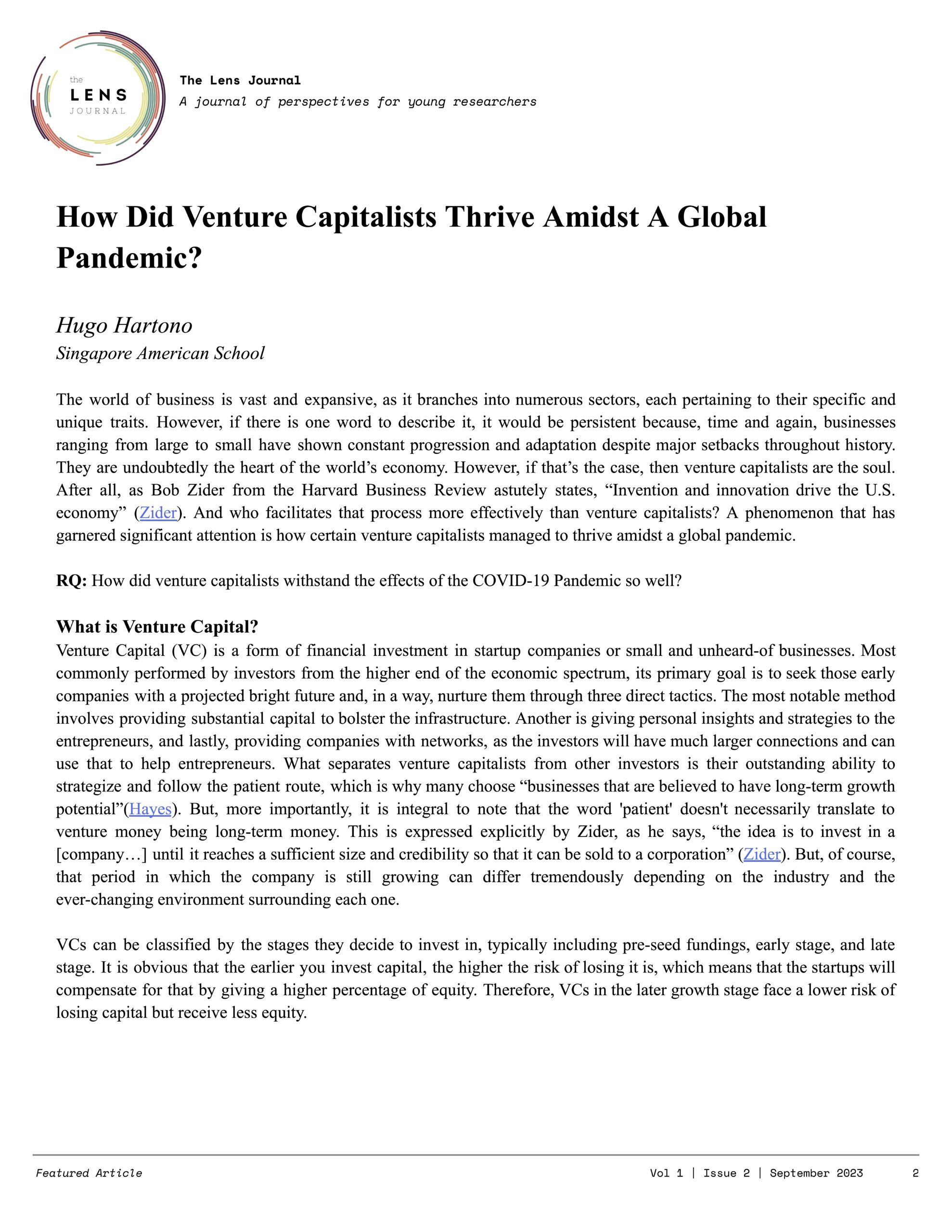
This article provides a comprehensive analysis of the strategies and resilience of venture capitalists during the tumultuous times of the pandemic, offering insights into the financial mechanisms and decision-making processes that underpinned their success.
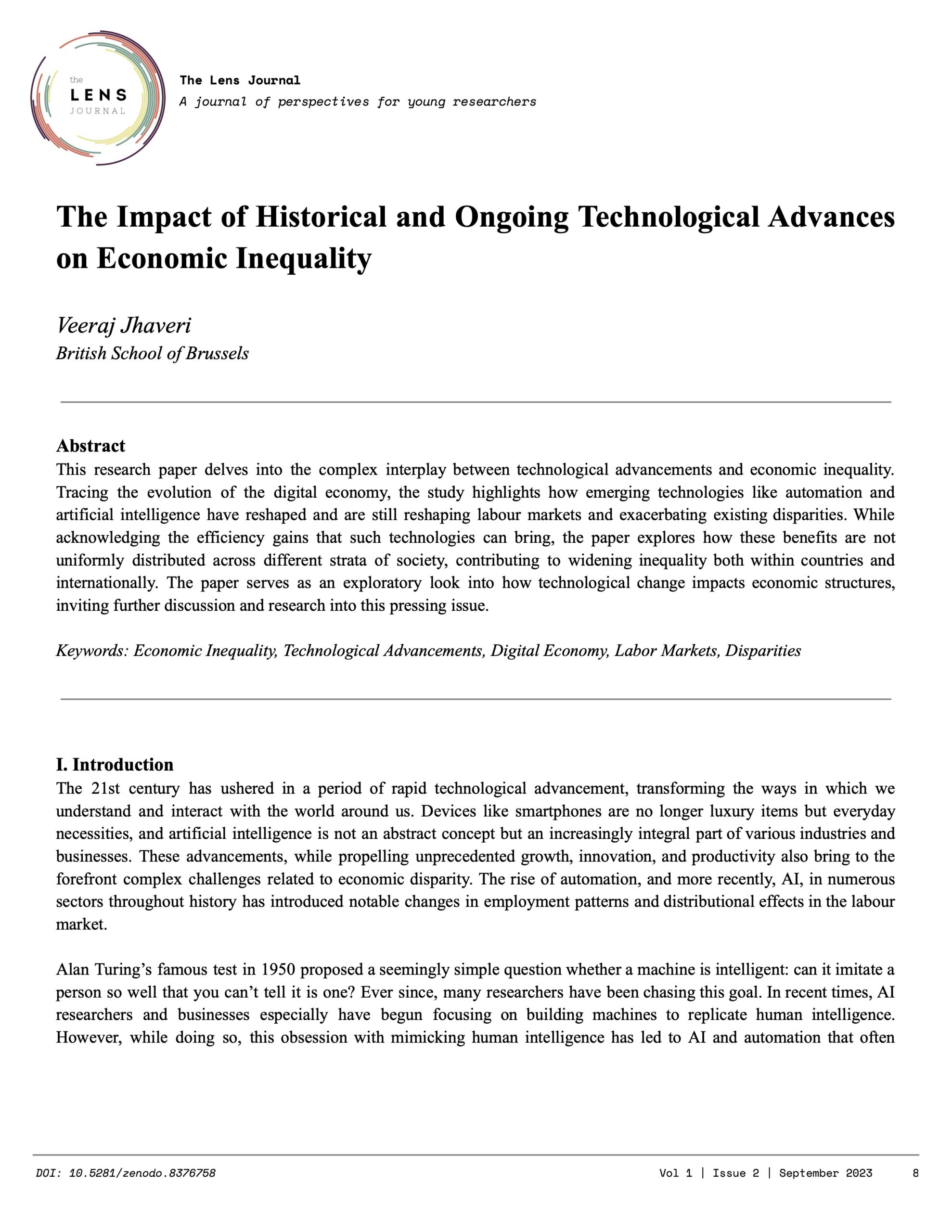
Veeraj Jhaveri
10.5281/zenodo.8376758
In an era marked by rapid technological advancements, this research delves into the intricate relationship between automation, artificial intelligence, and economic disparities. By tracing the evolution of the digital economy and its ramifications on labor markets, the paper offers a timely reflection on the societal implications of technological progress.
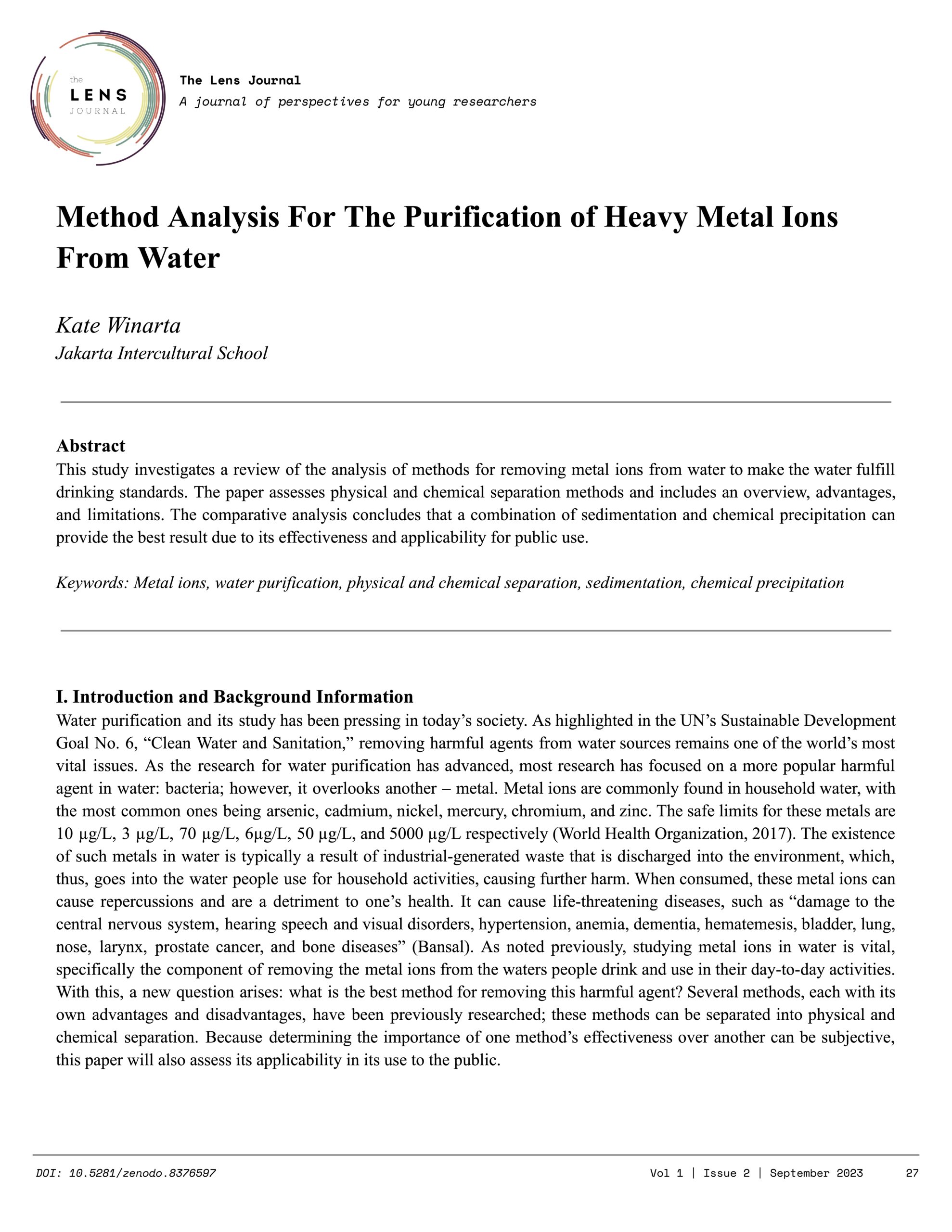
Kate Winarta
10.5281/zenodo.8376597
Addressing a critical environmental and public health challenge, this study provides a comprehensive review of techniques for removing metal ions from water. By juxtaposing physical and chemical separation methods, the paper underscores the significance of a combined approach, emphasizing its potential to revolutionize water purification processes.
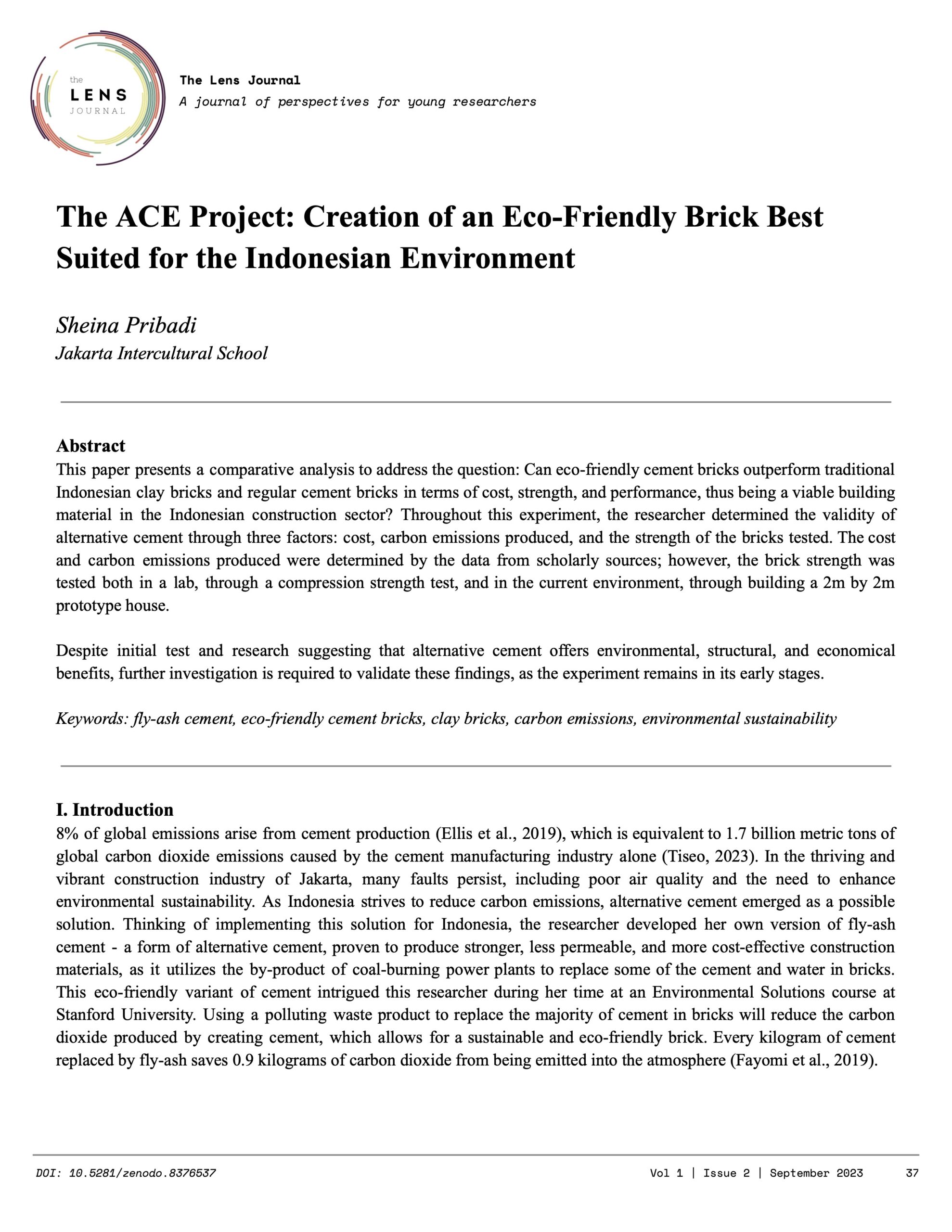
Sheina Pribadi
10.5281/zenodo.8376537
This paper embarks on an exploratory journey into the realm of sustainable construction materials, challenging traditional norms and presenting a compelling case for eco-friendly cement bricks in the Indonesian context. The nuanced analysis of cost, carbon emissions, and brick strength offers invaluable insights into the potential of alternative cement as a game-changer in the construction sector.
Ready to submit your paper?
Submit PaperBrowse Issues
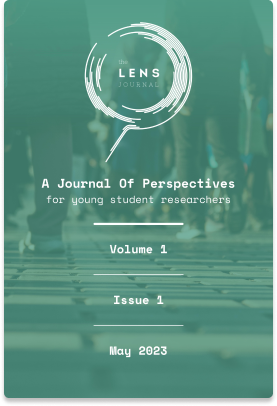
Volume I, Issue I, May 2023
In the current issue of The Lens, we explore a diverse array of topics, exhibiting the interdisciplinary nature of our journal. The articles delve into the efficacy of public-private partnerships for sustainable development in least developed countries, the impact of sneaker collaborations on the resale market, strategies for Chinese companies to integrate into foreign markets, and an analysis of affordable aquaponics systems for educational purposes. These contributions, bridging the fields of economics, business, and environmental studies, foster a rich and engaging academic discourse and encourage the exchange of innovative ideas across various domains.
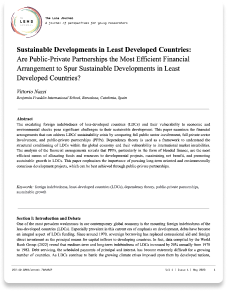
Gregorio Nazzi
DOI: 10.5281/zenodo.7876275
China’s global influence has grown immensely in recent times. It has been propelled to the top, becoming a global superpower, much like the US. However while the latter has plenty of global household brands like Apple and Amazon, the former doesn’t, highlighting the struggles most Chinese companies face on their path to global influence.
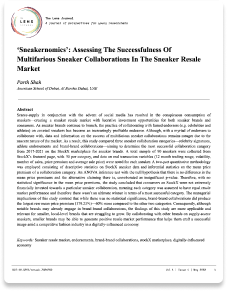
Parth Shah
DOI: 10.5281/zenodo.7824756
This study compared three sneaker collaboration categories—celebrity signatures, athlete endorsements and brand-brand collaborations—aiming to determine the most successful collaboration category from 2017-2021 on the StockX marketplace for sneaker brands.
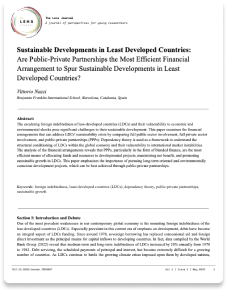
Vittorio Nazzi
DOI: 10.5281/zenodo.7824847
This paper examines the financial arrangements that can address LDCs' sustainability crisis by comparing full public sector involvement, full private sector involvement, and public-private partnerships (PPPs).
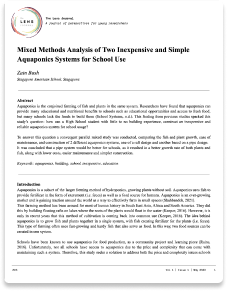
Zain Bush
DOI: 10.5281/zenodo.7876317
To answer the question: how can a High School student with little to no building experience, construct an inexpensive and reliable aquaponics system for school usage?, a convergent parallel mixed study was conducted, comparing the fish and plant growth, ease of maintenance, and construction of 2 different aquaponics systems, one of a raft design and another based on a pipe design.
Ready to submit your paper?
Submit PaperMake sure your you have read through our
Guidelines and Submission Process before submitting.
Click on the email address below to send your manuscript.